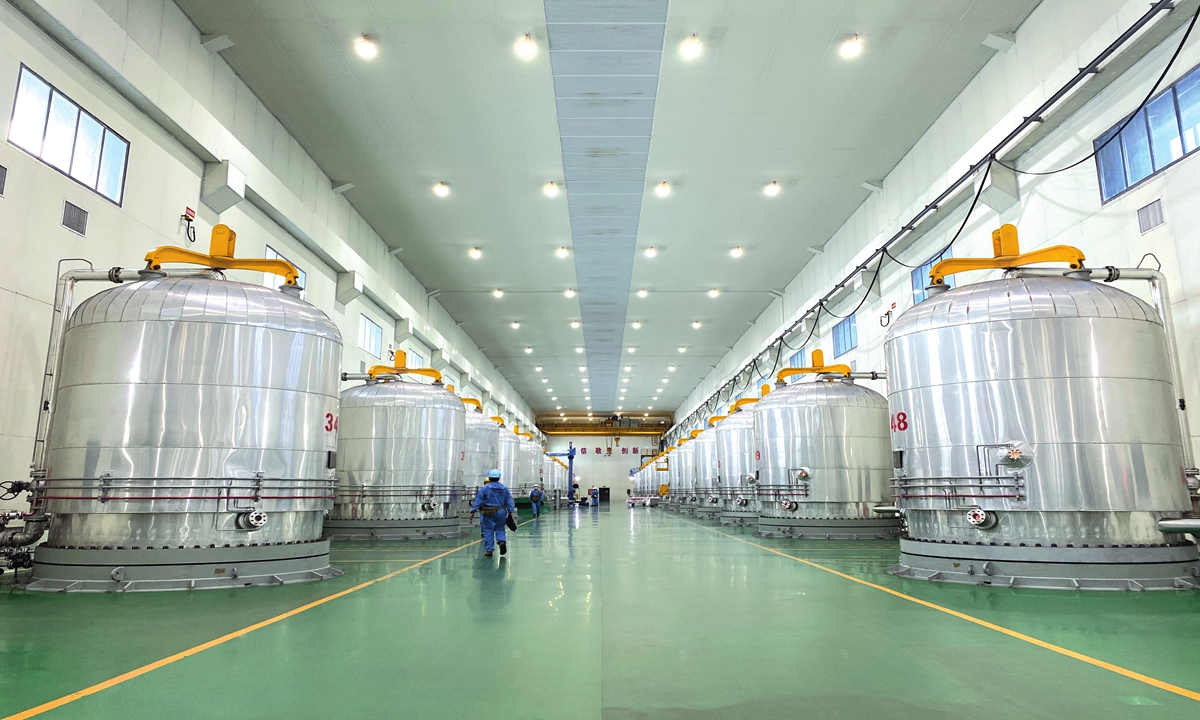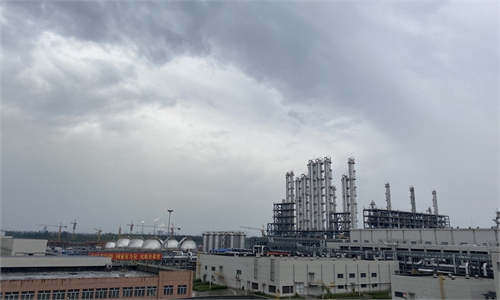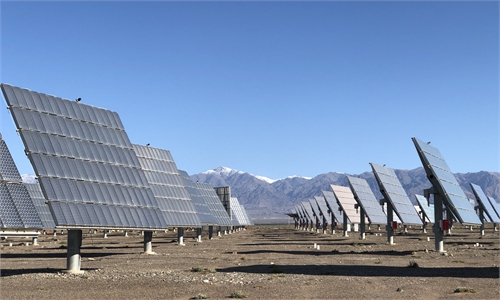US ‘forced labor’ stigmatized accusation against Xinjiang solar industrial chain baseless: association

Workers inspect a chemical vapor deposition workshop at Xinjiang Daqo. Photo: Zhang Dan/GT
Following a recent field research into the solar industry in Northwest China's Xinjiang Uygur Autonomous Region, China Photovoltaic (PV) Industry Association said that the US' accusation citing "forced labor" against the Xinjiang solar industrial chain is "baseless" after the US added several local solar firms to an entity list.
The industry association called on organizations and individuals to physically visit Xinjiang in order to promote their understanding about Xinjiang's polysilicon industry, PV industry and local socioeconomic development, said an article published by the association on Wednesday.
During June 23-26, the association visited several PV firms in Xinjiang to learn about their operations and the difficulties they encountered.
The probe found workers of all ethnic groups enjoy the right of remuneration for labor, the right to rest and take holiday, to protect safety and health. Their right to obtain social security benefits is also protected.
"We learned during the field research that the development of Xinjiang's polysilicon industry and PV industry has greatly boosted the global PV applications by cutting generating cost and Xinjiang's socioeconomic development," said the association.
Taking advantage of local energy strengths and China's PV technology, a batch of leading private companies set their plants in Xinjiang and effectively lower the costs of PV products thanks to scale economies effect.
Supervised by laws, regulations and listed institutions, Jinko Solar and Daqo New Energy get listed on New York Stock Exchange; GCL-Poly Energy and Xinte Energy get listed on Hong Kong stock exchange.
Responding to the inquiry of the Global Times on June 24, Xinjiang Daqo which was put on the US entity list reaffirmed the company's "zero tolerance on forced labor." "Considering the US PV market only needs 10 percent of the world's polysilicon, we don't believe it will create a significant impact on our businesses," said the company.
At present, the polysilicon output in Xinjiang accounts for about 45 percent of the world's total, representing an indispensible part of the global PV industrial chain, according to the association.
"The robust growth of PV companies in Xinjiang has driven the region to form a silicon-based industrial cluster, boosted upstream and downstream industrial development and created a large number of jobs," said the association, adding it will keep in contact with relevant companies, organize exchange opportunities with overseas industry groups to boost mutual trust in a bid to refute slanders of Xinjiang's solar sector.
Global Times


